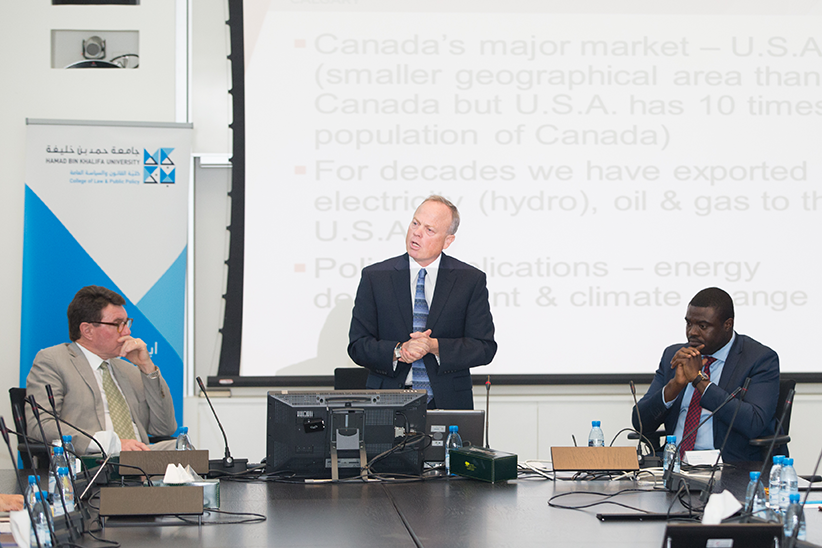Hamad Bin Khalifa University’s (HBKU) College of Law and Public Policy (CLPP) hosted a colloquium on November 22 to explore the legal and policy models for successfully reducing greenhouse gas emissions. Titled Canadian Energy Development Policies and Laws on Reducing GHG Emissions: The 2016 Paris Agreement and Beyond, the colloquium focused on introducing researchers and industry professionals to Canadian energy development policies and laws enacted after the 2016 Paris Agreement as a case study on the subject. By facilitating such events, HBKU continues to build new knowledge in the pursuit of novel approaches towards solving regional and global challenges, including environmental degradation and climate change.

Professor Clinton Francis, founding dean of CLPP, said: “This colloquium provides invaluable insight into the myriad approaches employed by governments and regulators to reduce greenhouse gas emissions by showcasing real-world examples. At CLPP, we focus on providing our scholars and researchers with practical case studies and examples, to engage in meaningful dialogue and discussion with leading government and industry experts. This approach facilitates the creation of new solutions to help inform the development of local policies that can benefit the future generations of Qatar, and allow Qatar to set an example to the world.”
The keynote lecture at the colloquium was delivered by Dr. Allan Ingelson, executive director of the Canadian Institute of Resources Law and associate professor in the Faculty of Law at the University of Calgary, Canada. The address, as well as the ensuing discussion, revolved around how Canada, as the second largest country in the world in terms of geographic area, is actively dealing with the challenges of developing vast energy resources that are located around the country.
Participants gained detailed insight into the various policies and regulations adopted by Canada’s federal and regional governments (provincial and territorial) that are specifically calibrated to reflect each jurisdiction’s natural resources and existing energy infrastructure. This included discussions on the setting of Canada-wide emissions targets for a variety of greenhouse gases and pollutants; establishing a uniform nationwide carbon tax framework to promote environmentally-conscious behavior and practices; and ways of enacting localized polices that deal with the development of hydrocarbon resources to effectively tackle climate change.





